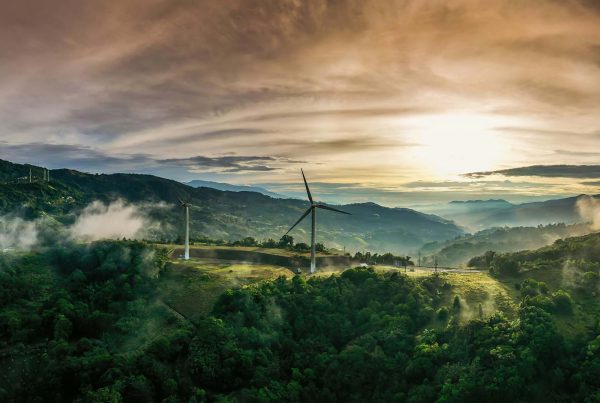What was your role previous to joining Oxford HR / what is your career background?
Before joining Oxford HR, I spent 15 years in the environment / climate sector working in multiple roles in UK, Indonesia, Hong Kong and India.
I started my career in PR and Communications, motivated by the love of a good story, and I’ll never forget joining TV crews in search of basking sharks, following tiger trails with wildlife photographers and meeting heroes like David Attenborough and Jane Goodall.
After a few years I wanted to develop my interest in human behaviour change in response to the climate crisis. I trained as a coach, facilitator and an NLP practitioner and moved into Learning and Development where I spent many happy years working with Earthwatch (the international environmental NGO).
Here I oversaw the development and delivery of sustainability and climate leadership programmes for multinational corporate partners, taking place in wild spaces across six continents and resulting in high levels of employee engagement, new environmental policies and deeper appreciation for the finite natural resources embedded in supply chains. This work took me and my team all over the world – witnessing the wonder of nature and the horrors of environmental destruction in equal measure.
This period really shaped my interest in leadership for a sustainable future and so, what better place to continue my career than Oxford HR, whose mission is to enable excellence in leadership in the for-purpose sector. Alongside working as a consultant, I am also co-founder of a small but incredibly ambitious start-up called the Climate Change Coaches who endeavour to ignite a mindset shift around climate change by bringing coaching skills to change makers and climate change to coaches.
What role are you most proud of placing in your time at Oxford HR and why?
In my two years with the organisation I have had the pleasure of working with some amazing clients such as Practical Action, Reall, UNAIDS, Plan International, Every1Mobile, the Peaceful Change Initiative, WWF, Water Witness and more. Placing the Executive Director and Head of Communications at the Ethical Tea Partnership (ETP) made me proud in 2020 as both candidates went through the whole recruitment process during the UK lockdown without even meeting their colleagues in person. Moreover, this is an organisation that is working to catalyse transformational change across an entire sector and after working with them, I cannot look at my morning cup of tea in the same way.
What makes a dream candidate?
It depends on the role of course but I have certainly observed that people who are successful at leading change in the for-purpose sector, need to have significant personal resilience, a sense of humour and the ability to move and swivel the goal posts as the world changes rapidly.
What issues keep you awake at night?
Needless to say – climate change would be the number one, swiftly followed by the migrant and refugee crisis. I see climate change as symptomatic of the larger sustainability problem of how we as humans use and treat the planet and the rest of the life on it. Since I started working in this sector, the conversation has evolved from ‘how can we save our planet’ to ‘how can we ensure the survival of our own species … quickly’.
David Attenborough’s words in the upcoming film A Life on our Planet haunt me – ‘half of fertile land on Earth is now farmland, 70 per cent of birds are domestic, majority chickens. We are one third of animals on Earth. This is now our planet run by – and for – humans. There’s little left for the world.’
While this challenge is epic, there is much evidence of innovation and ingenuity, collaboration, and creativity happening now. The young people of the world have really mobilised in recent months, and sustainability is becoming a core business issue for many global brands. Change is happening around us and we have an amazing opportunity to rethink how we do things as we respond to Coronavirus.
And what do you to stay motivated in light of the above?
I find engaging in local activities helps to keep me grounded. Certainly, in the UK we have seen a surge in community spirit since coronavirus and that same spirit is helping communities to reduce waste, go plastic free and spearhead initiatives like community forests. Just last week, my children and I planted about 50 acorns, and while few of them will grow into oak trees the action of getting our hands dirty and studying the soil was enriching.
What advice do you have for people wanting to move into the for-purpose sector?
Please do. But also remember that for-purpose work should be happening in all sectors. We need NGOs, business, public sector organisations, entrepreneurs, and individuals to reconfigure our societies and economies to work sustainably. If you do not feel your current place of work is ‘for-purpose’, then what needs to happen to change that and can you help?
All that said, if you’re really driven to work for an organisation like one of my clients mentioned above, then it is a competitive landscape – learn as much as you can, make the most of the free resources out there, talk to people, and get in touch with us.
Which organisation would you love to place a role for and why?
All of the organisations we work with have compelling missions, whether it is about gender equality, poverty reduction, conflict sensitivity or health provision. As co-leader of the environmental practice area, I would love to see more organisations in this space collaborating with us to find and support their leaders. I know that environmental groups and causes receive less than 2% of global philanthropy and even with an increased awareness of the problem, they certainly struggle to secure public funds compared to people-centred causes.
As such, first class talent management, recruitment and leadership development can be harder to justify. I believe the investment pays off and we are here to have open and exploratory conversations about how we can help.
Back to the question, I have enormous respect for organisations like Client Earth, the Ellen MacArthur Foundation, One Earth, The Woodland Trust and The Climate Group amongst others. In addition to these diverse organisations, I would very much like to work with more businesses who want to deepen and expand their sustainability teams.
What would you like to see more of in the for-purpose sector?
I would love to see more creativity when it comes to flexible working, especially in head office type positions. We have seen a surge in home working in recent months but imagine if it became the new normal to be more open to different ways of working, from job-shares to term time contracts and true flexible working. The 9 to 5 five-day week is so rooted in tradition that it seems hard to conceive of anything different, but there are so many good reasons to shake it up – from personal and family wellbeing to pollution and carbon emissions.
Zoe joined Oxford HR in 2018 after 15 years working in the charity/NGO sector with a focus on Learning and Development and Leadership for Sustainability. Her work with Earthwatch, the international environmental NGO, took her to India, China, Latin America and South East Asia where she has collaborated with local organisations, community groups, global NGOs and multinational companies to deliver nature based behaviour change and citizen science projects.
She is passionate about discovering and developing leaders who are dedicated to creating a sustainable, equitable and poverty-free world. Zoe has a postgraduate degree from the Institute for Leadership and Sustainability (University of Cumbria), is a trained coach and facilitator and has significant experience of bringing groups together in nature to consider the skills and competencies needed to tackle climate change and address the Sustainable Development Goals. She is also a founding member of the Climate Change Coaches.



